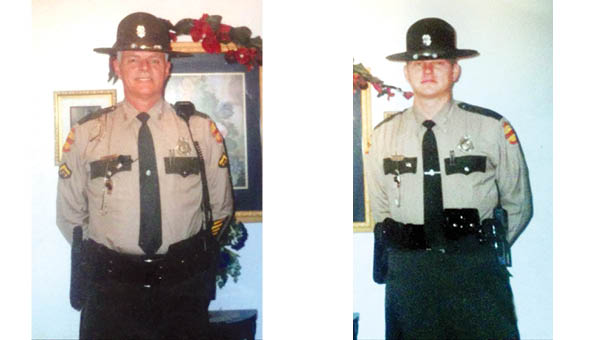Sycamore Shoals State Park to Commemorate the 250th Anniversary of Historic Treaty
Published 10:25 am Tuesday, March 4, 2025

- Photo Contributed This year marks the 250th anniversary of the Transylvania Purchase.
|
Getting your Trinity Audio player ready...
|
Sycamore Shoals State Historic Park in Elizabethton will observe the sestercentennial of the Transylvania Purchase. Also known as the Treaty of Sycamore Shoals, this negotiation between Native Cherokee and early settlers resulted in the largest private land transaction in U.S. history.
From 1772 to 1780, Sycamore Shoals was the site of several key events in the history of East Tennessee. Currently, the park is observing an eight-year period to commemorate the 250th anniversaries of these historic occurrences. This year marks the 250th anniversary of the Treaty of Sycamore Shoals, which occurred on March 17, 1775.
During this treaty, land speculator Richard Henderson, representing the North Carolina-based Transylvania Land Company, negotiated with a Cherokee delegation led by peace chief Attakullakulla and other principal Cherokee headmen for the purchase of a large tract of land between the Cumberland and Kentucky rivers. Henderson’s goal was to encourage western settlement and create a 14th colony on the Trans-Appalachian frontier. When the treaty was complete, Henderson purchased more than 20 million acres in exchange for trade goods and silver equivalent to 10,000 British pounds sterling. These lands encompassed much of present-day Kentucky and a large portion of Middle Tennessee, making it the largest private real estate transaction in American history.
Trending
Two days later, on March 19, 1775, the local residents of the Watauga Settlement entered into their own negotiation with the Cherokee leaders for the purchase of the lands along the Holston and Watauga rivers, which they had been leasing since 1772. These land transactions angered Attakullakulla’s son Dragging Canoe, a staunch opponent of the encroachment of European settlers onto what had been Cherokee lands for centuries.
In Dragging Canoe’s famous and prophetic speech to those present at the treaty, he warned the settlers that a dark cloud hung over their newly acquired lands and that its settlement would be “dark and bloody.” Dragging Canoe would spend the rest of his life fighting for his people.
Sycamore Shoals State Historic Park—250 years later—will commemorate this historic event with living history demonstrations, guest speakers, a guided hike on the park grounds, and special exhibits. The event will be highlighted by two guest speakers delivering presentations on two historic characters who figure prominently in the story of the treaty.
Robert Rambo, of Cullowhee, North Carolina, will deliver a presentation on the life of Cherokee Peace Chief Attakullakulla. Also known as Little Carpenter, Attakullakulla played a pivotal role in Anglo-Cherokee relations and in the early history of the Watauga Settlement as the principal Cherokee negotiator during the Treaty of Sycamore Shoals.
Captain Robert K. Rambo (USA, Ret.) earned his B.A. in history from the Virginia Military Institute, his teacher certification (history) at the University of Virginia-Wise, and his M.A. (U.S. history–Cherokee studies program) at Western Carolina University. His research centered on Attakullakulla during the 18th century. He has researched and presented programs on Attakullakulla since 1993 at parks, museums, schools, universities, and for the Kentucky Humanities Council’s Chautauqua program.
Steven Y. Caudill, of Winchester, Kentucky, will deliver a powerful first-person portrayal of the noted frontiersman Daniel Boone, whose adventures into the frontier and involvement in the settling of Kentucky were direct results of the Treaty of Sycamore Shoals.
Trending
Caudill, who is a retired detective with the Winchester Police Department, has brought the character of Daniel Boone to life for numerous schools, universities, organizations, and living history events across the country. Those who have had the pleasure of seeing Caudill perform have noted his sincere passion for history and admiration for Boone. “He will take you on a historical and educational journey through one of history’s most notable figures.”
Make sure to be where it all began, and bring the entire family to Sycamore Shoals State Historic Park for a day of historical fun and education as you walk in the footsteps of history.
For more information, call 423-543-5808 or visit tnstateparks.com/parks/sycamore-shoals, sycamoreshoalstn.wordpress.com, or the park’s Facebook page.
This commemoration of the Transylvania Purchase will be the first in a series of programs this year marking the 250th anniversary of historical events in Tennessee, Virginia, and Kentucky along the Wilderness Road and Boone Trace.
Event Schedule
8 A.M. – Park Visitor Center Opens
10 A.M. – Event Opens; Living history area and demonstrations open.
10 A.M. – Walking in Frontier Footsteps: Join Park Ranger Taylor Moorefield for a guided hike along the park trail and grounds. Take in the natural spring beauty of the park while learning about the Treaty of Sycamore Shoals where it actually happened. The program will begin at the picnic area beside the park visitor center.
12 NOON – Attakullakulla, Cherokee Peace Chief: Join noted historian Robert K. Rambo as he shares about the life and accomplishments of one of the principal figures associated with the Treaty of Sycamore Shoals, Cherokee Peace Chief Attakullakulla. The program will be held in the visitor center “Gathering Place.”
2 P.M. – Meet Daniel Boone: Steven Y. Caudill brings history and the character of Daniel Boone to life. Take a trip back in time and look into the facts and myths of one of America’s most celebrated frontiersmen. The program will be held in the visitor center “Gathering Place.”
4 P.M. – Event Closes
4:30 P.M. – Park Visitor Center Closes
Ongoing Activities
Join the park’s history interpreters and skilled heritage demonstrators in and around the reconstructed Fort Watauga to enjoy demonstrations, displays, and presentations of various aspects of 18th-century frontier life. Activities include 18th-century cooking, weaponry, frontier hunting camp, medicinal plants, colonial taverns, gardening, spinning and weaving, children’s games, fife and drum music, and more!






